Portraits from the frontline of global protests
Climate change, inequality, corruption – these are just some of the reasons why demonstrators are taking to streets across the world
Your support helps us to tell the story
From reproductive rights to climate change to Big Tech, The Independent is on the ground when the story is developing. Whether it's investigating the financials of Elon Musk's pro-Trump PAC or producing our latest documentary, 'The A Word', which shines a light on the American women fighting for reproductive rights, we know how important it is to parse out the facts from the messaging.
At such a critical moment in US history, we need reporters on the ground. Your donation allows us to keep sending journalists to speak to both sides of the story.
The Independent is trusted by Americans across the entire political spectrum. And unlike many other quality news outlets, we choose not to lock Americans out of our reporting and analysis with paywalls. We believe quality journalism should be available to everyone, paid for by those who can afford it.
Your support makes all the difference.Protests swept the globe in 2019, with people engaging in rallies from Catalonia to Colombia, and Haiti to Hong Kong – and continuing in the same vein into 2020 so far.
Each movement had its own trigger. Some were fed with corruption and entrenched elites. Others wanted democracy or independence.
Some called for reforms and others opposed them. Worries over climate change and environmental destruction also galvanised activists the world over.
The frustrations were sometimes similar, from inequality to powerlessness.
And often the protests turned violent, with security forces killing several hundred people in Iran, Iraq and elsewhere. Volleys of tear gas became a familiar sight in traditionally peaceful and stable Hong Kong.
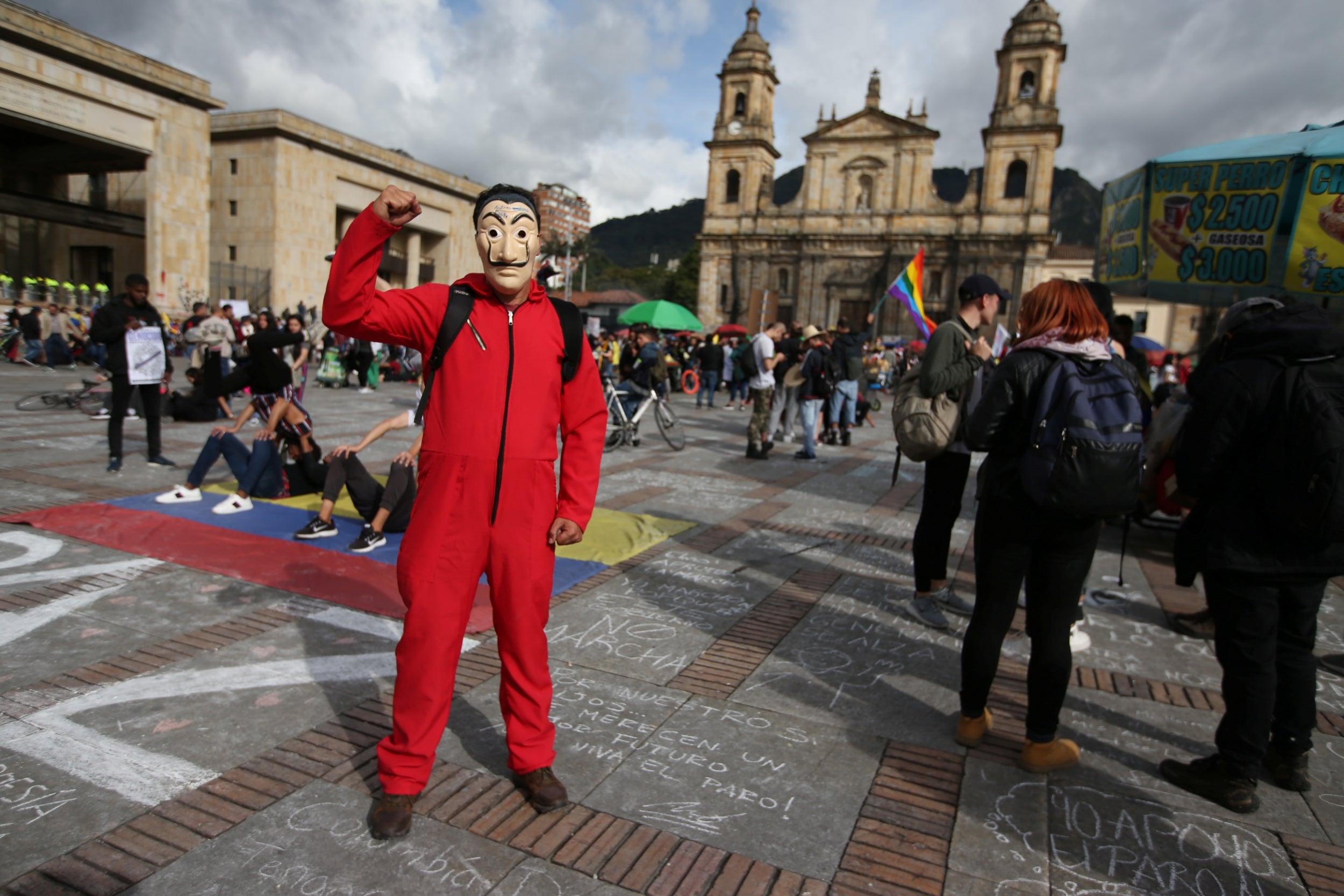
Yet amid the gunfire and clouds of teargas, there was a feeling of solidarity as demonstrators drew on each other’s determination and strength.
“Right now we are in a stage of awakening and we have to take advantage of that,” said Andres Felipe Vargas, a professor joining an anti-government strike in Bogota, Colombia.
“What is happening in our country, and these injustices that generate inequities, are the same injustices that are destroying the planet,” he said.
Reuters photographers in more than a dozen countries documented the depth of feeling that linked disparate movements.
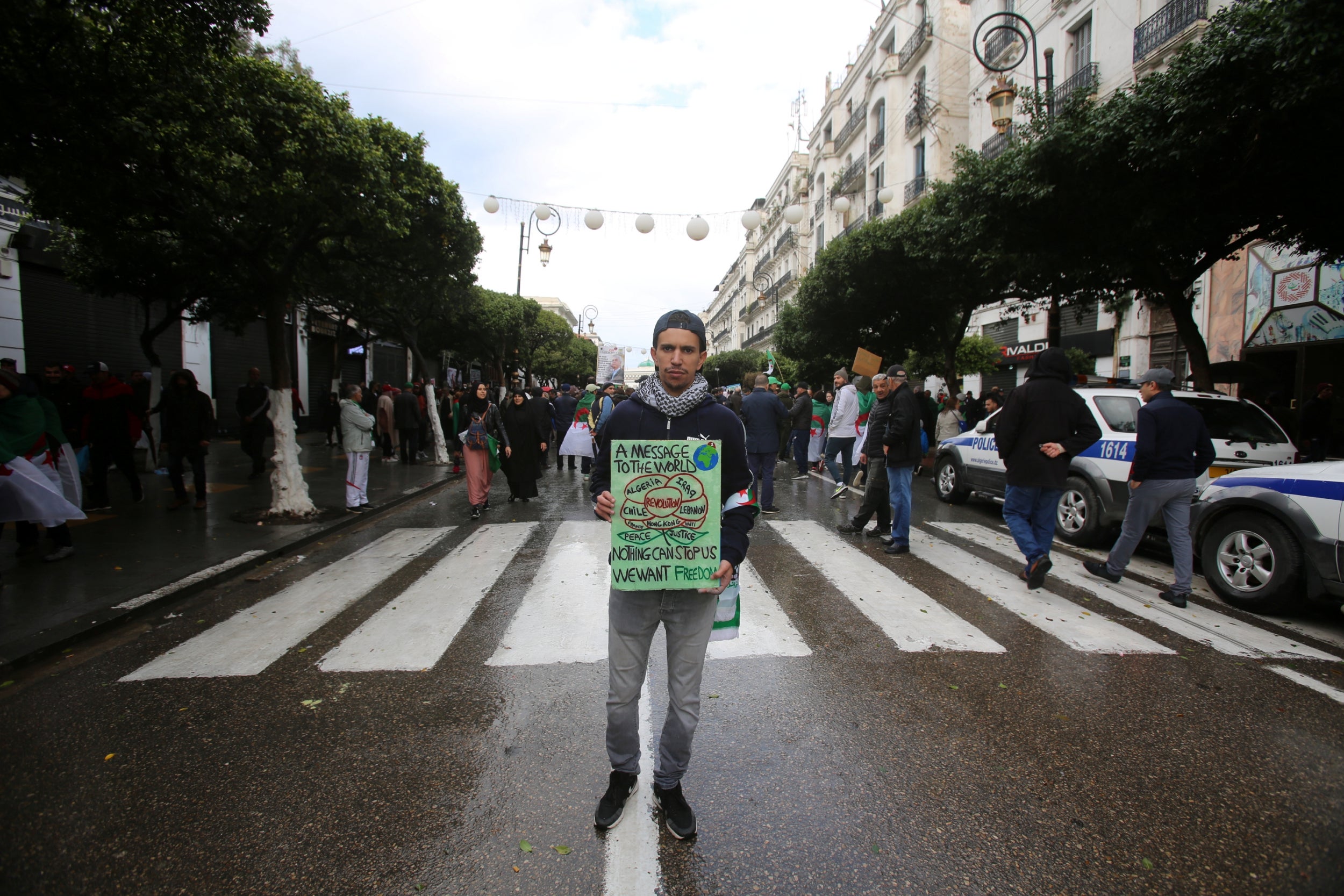
“I am protesting against injustice and dictatorship,” said Amiri Yacine, 26, holding a poster depicting the world’s protests as a blossoming flower, packed amongst hundreds of mostly young demonstrators in Algiers.
Yacine, who has joined rolling demonstrations since February in opposition to the shadowy elite that has controlled Algeria since independence in 1962, likewise feels his demands are universal.
“We want to build a new Algeria ... we want free media and a total respect of human rights. Also, we want jobs and infrastructure,” Yacine said.
“My message to protesters is just be peaceful – be wise and keep calm. Fight the system with good ideas, because they don’t have ideas.”
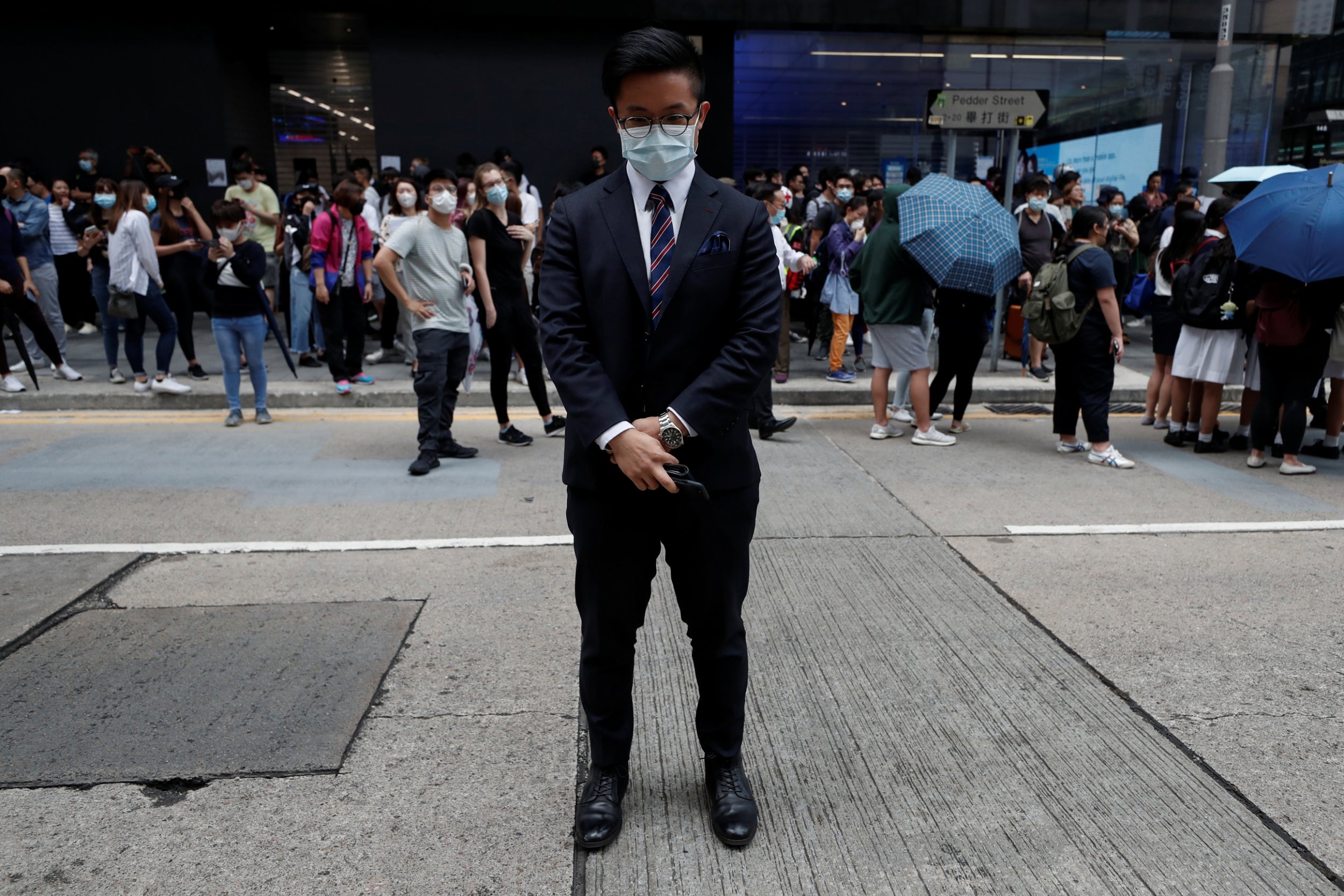
Summer has turned to winter in Hong Kong, where demonstrations against a controversial extradition bill turned into a push for greater democracy.
The Beijing-backed government has refused to yield, while the protesters have gathered in vast numbers, turning shopping districts into a sea of black-clad people.
“This is a universal demand for democracy and fairness,” said Jasper, a 27-year-old bank worker, who joined a downtown protest at lunchtime. He cut a suave figure, in a sharp suit, red-and-blue striped tie and pocket square, standing on Pedder Street in the city’s central district.
Like many protesters, he declined to give his surname and wore a surgical mask to conceal his identity.
“Every country in the world faces the same situation. This will not be an easy road, but we all know we are doing the right thing.”
The movement has invited comparisons with protesters pushing for independence for the Spanish region of Catalonia, where the sentencing of separatist leaders to long prison terms led to renewed and sometimes violent protests.
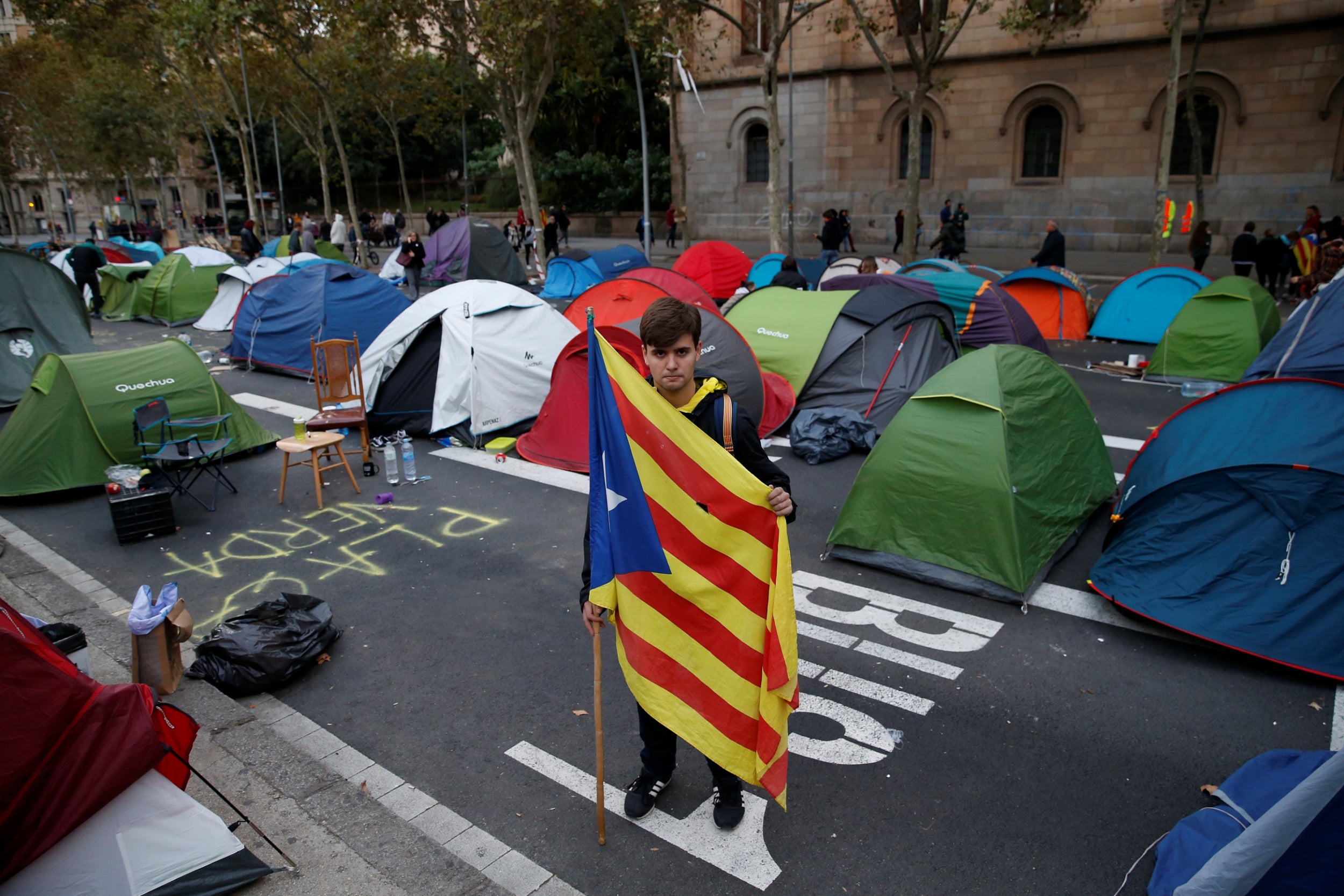
“We’re here, mainly young people, outraged by the sentences and the inability of politicians to talk,” said Barcelona student Axel Buxade, 18, holding a Catalan flag at a demonstrators’ camp on a city street.
Referring to Hong Kong, he added: “There have been acts of mutual support, if they reach their goal we’ll be very happy.”
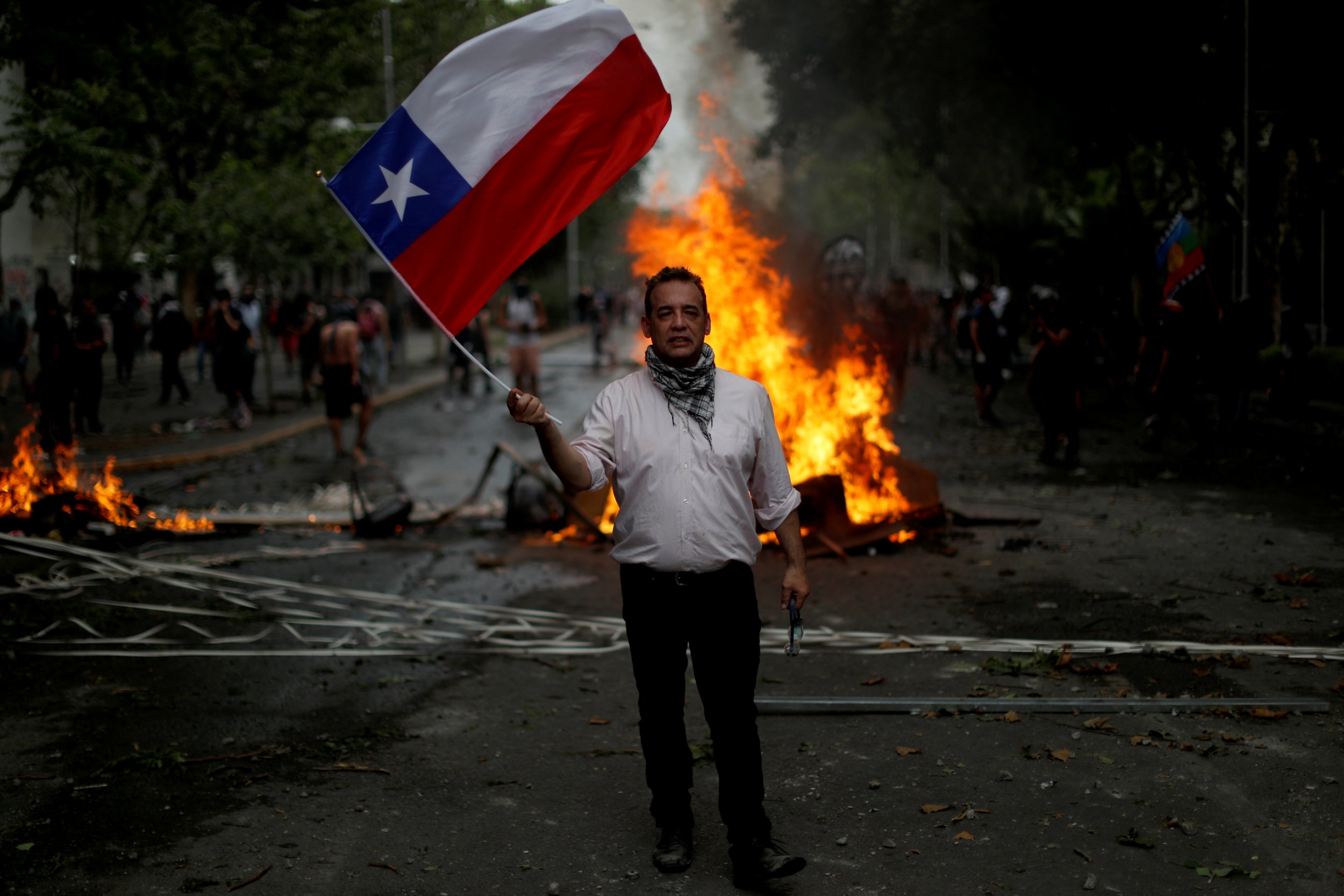
Economics, and in particular inequality, has also proved potent fuel for protests in Lebanon, Chile, Ecuador and Iraq.
“People in the world are tired of injustice,” said Chilean Alex Munoz Fuentes, a 47-year-old accountant, standing before a burning barricade on a Santiago street.
“I don’t want anything given for free,” he said, the national flag in one hand and a pair of goggles to protect him from teargas in the other.
“But I know that in Chile, the institutions, the law and the constitution are made to abuse the working classes. I want a new deal.
“Hong Kong is similar, the authorities are not thinking about people’s wellbeing. I have a fraternal hug for them, and all my solidarity from Chile. Please don’t give up.”
Reuters
Join our commenting forum
Join thought-provoking conversations, follow other Independent readers and see their replies
Comments